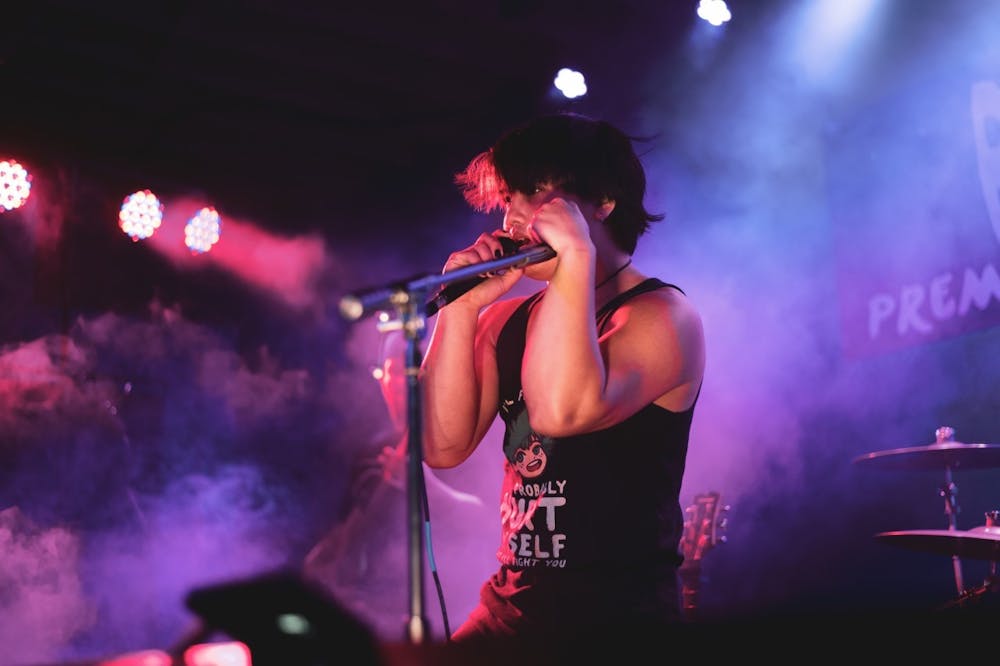Street performing has existed for centuries. It is a way for individuals to showcase their talents, express themselves and connect with their community. These small, unconventional and unexpected performances have the power to disrupt the bustle of a street and unite a crowd with a universal appreciation of a certain skill. A spirited performer who is willing to share their passion with their community allows onlookers to take a step out of their own lives and appreciate the art around them. People might stop for only a moment, or they might not stop at all, but in just a moment, street performers can remind us of the joy that can be found in creating, movement or art.
Each Saturday in Columbia, South Carolina, vendors hitch up their stalls along Main Street to sell their products at Soda City, a farmer's market. Over 150 vendors come to sell anything from vintage clothes to dog treats. As a result, Soda City has become a place not only where people can taste some new food, but also where Columbians can participate and observe the culture of their community. Buskers, or street performers, are part of that culture.
The excitement and popularity of Soda City makes Main Street a perfect place for buskers to perform on Saturdays. Artists and performers are scattered throughout Main Street, sandwiched between vendors. Supa Chai began singing at Soda City after a mentor suggested that busking could help him “get a foot in the door.”
“Busking got people to notice me,” Chai said. However, he notes that he rarely booked any shows at venues through it.
Chai’s popularity has grown and he is now so busy performing shows that he no longer has time for busking, although he wishes he did. “I was out there to practice and to form connections with people so that I could become a working performer,” Chai said. “It was less about the money and more because I really enjoy music and I enjoy sharing music with people.”
Ten-year-old Ayden Cobb busks for similar reasons as Chai. Cobb, who offered free hugs to Soda City shoppers before the pandemic, said his favorite part of busking is “seeing people come and dance–seeing them happy.” His enthusiasm for dancing is contagious, making him well-known at the market.
However, street performing is not without its trials. Both Chai and Cobb said that they mostly receive positive feedback, but both have had some challenges. Cobb’s father recalled a couple of instances when they received some rude comments, but Cobb remained unfazed. “Haters gonna hate,” he said.
Chai also reported mostly positive experiences, but he has had some issues with other buskers. He noted how sometimes other performers would set up close to him to profit off of the crowd he attracted. According to Chai, buskers, particularly musicians, have to oblige to a “code of etiquette” and be conscious of where they set up to not infringe on another busker's performance.

Photo courtesy Supachai
Busking is undoubtedly heavily associated with the audience's reception and feedback. In addition to being a great way to share one’s talent, it can be lucrative. Chai said he can make over $200 in 2 to 3 hours at Soda City. On particularly profitable days, Chai said it could be hard to stop once he reached his limit. Since the amount of money he made was directly the result of how much time he put in, he was often tempted to push himself past his capabilities. He remembers days when he would busk for 8 hours. “I would tear my voice to shreds,” he said. “The reason I kept going was that people kept putting in money.”
Both performers’ passion for what they do transcends the discomfort of playing for people who might not always acknowledge them. Cobbs advises new buskers to “not get discouraged” when people ignore them.
Musicians and performers contribute to the culture of Columbia. Through performing, they portray an unselfconscious openness which is increasingly rare. This openness is what makes people stop walking to dance with Cobbs. They see his enthusiasm and want to share in it. It is what makes vendors share their food with Chai: a gesture that exemplifies what it means to be a member of a community. Their openness invites interaction. It's difficult to walk past staring at the ground in our personal clouds of worry when someone like Chai or Cobbs are performing. Their passion is too engaging.
You can learn more about Supa Chai by visiting his website, www.therealsupachai.com



